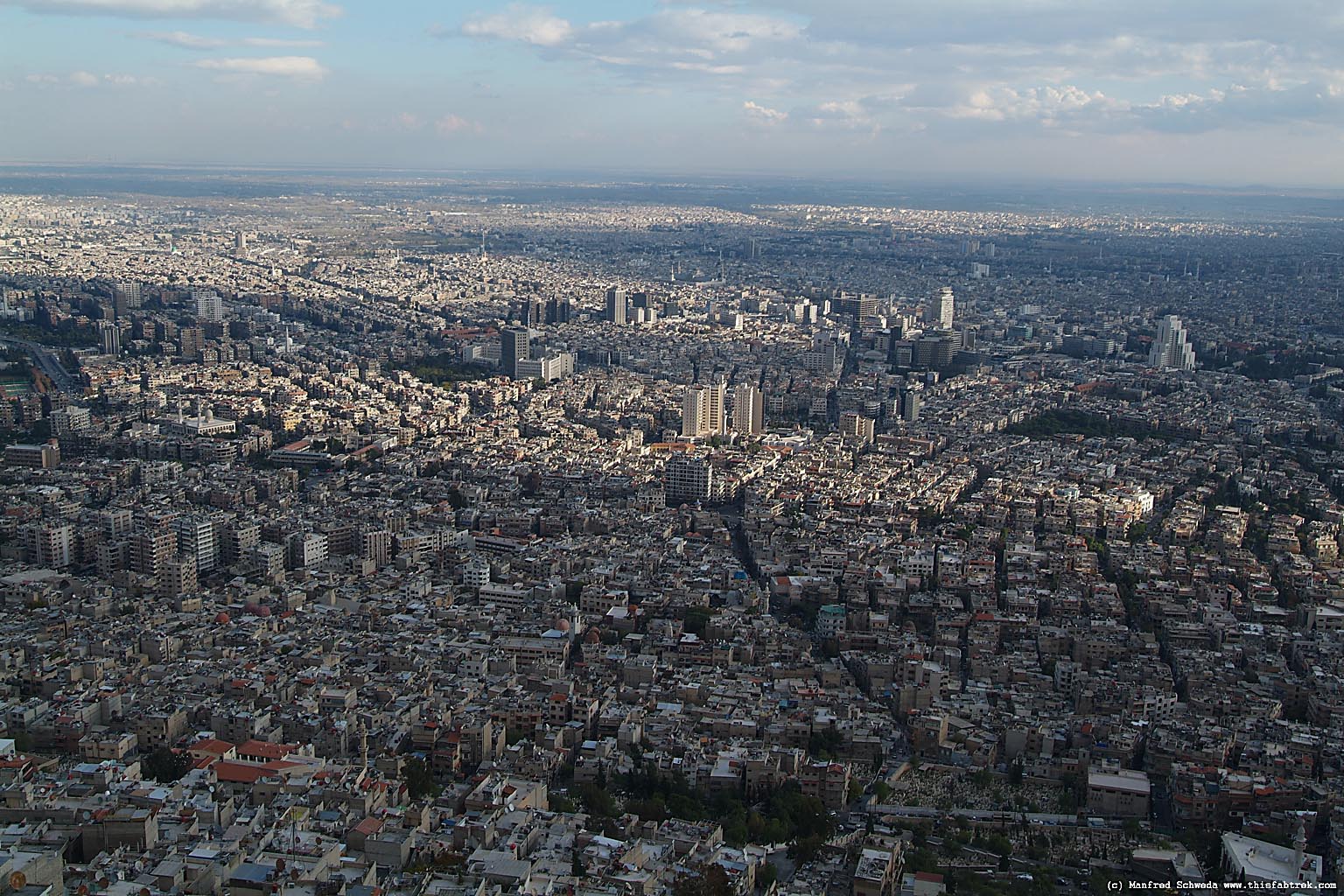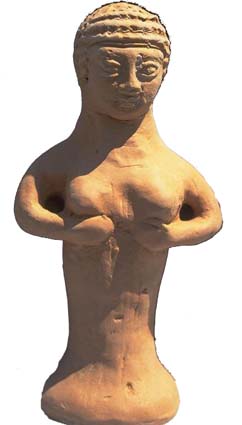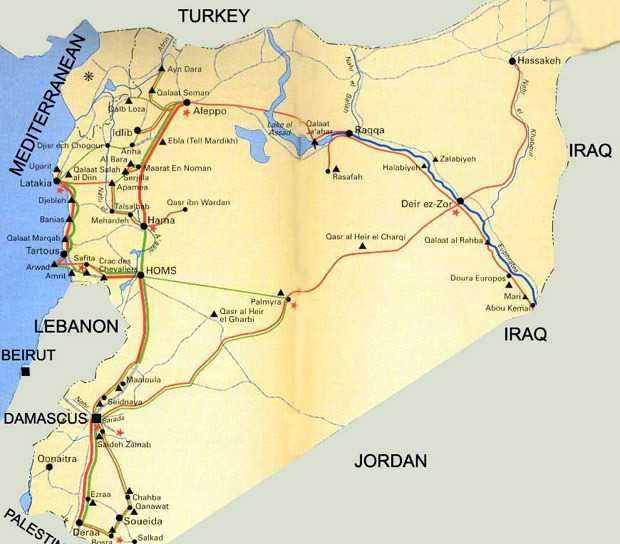 Many say that the current troubles in Syria are a fulfillment of this passage. However, upon closer look, the passage has nothing to do with the postmodern, Islamic nation of Syria.
Many say that the current troubles in Syria are a fulfillment of this passage. However, upon closer look, the passage has nothing to do with the postmodern, Islamic nation of Syria.
History
It must be remembered at the time of the writing of this prophecy (ca 700), Israel and Judah were not a united kingdom. After Solomon’s death (913 BC), the ten northern tribes separated from Judah and Benjamin in the south.
Damascus was one of the cities that served for a time as the capital city of the northern tribes of Israel. King David had set up a garrison there to protect the trade routes and the city gave homage to David.
Damascus was a place where there were altars to Asherim, and poles containing images of pagan deities. It was the custom to worship the asharahs in groves of trees. In this northern kingdom of Israel, no king ever tried to abate this behavior.
 The ten northern tribes felt beholden to provide an alternate place of worship to the temple in Jerusalem. This negated the need to acknowledge Jerusalem as the capital of a united Israel and allowed them to claim an alternate throne of rulership. So, all the Kings of Israel encouraged the worship of false gods.
The ten northern tribes felt beholden to provide an alternate place of worship to the temple in Jerusalem. This negated the need to acknowledge Jerusalem as the capital of a united Israel and allowed them to claim an alternate throne of rulership. So, all the Kings of Israel encouraged the worship of false gods.
The last king of the Northern Tribes in Damascus was killed by Tiglath-Pileser before 732 BC [2 Kings 16:9]. According to his annals, Tiglath-Pileser claims to have laid waste to the general area, cutting down gardens and plantations, and wasting 591 cities. However, it was Sargon II in 722-721 BC who depopulated the area sending the people of the ten northern tribes to Media which is in modern Iran. No one ever returned to reclaim their capital city. It is abandoned by Ephraim, i.e. another name for the ten northern tribes.
FYI: Those of you who are regular readers, note that this is the KJV and not the usual RSV. It is just that the RSV has some real problems that are very technical and a waste of time to explain. So, if you can get through wheat being called corn and the verbs ending in “th” you’ll do fine.
1 The burden of Damascus. Behold,
Damascus is taken away from being a city,
and it shall be a ruinous heap.
2 The cities of Aroer are forsaken:
they shall be for flocks, which shall lie down,
and none shall make them afraid.
3 The fortress also shall cease from Ephraim,
and the kingdom from Damascus, and the remnant of Syria:
they shall be as the glory of the children of Israel,
saith the LORD of hosts.
4 And in that day it shall come to pass,
that the glory of Jacob shall be made thin,
and the fatness of his flesh shall wax lean.
5 And it shall be as when the harvestman gathereth the corn,
and reapeth the ears with his arm;
and it shall be as he that gathereth ears in the valley of Rephaim.
Fulfillment
The next historical event is most likely the fulfillment of the prophecy. Damascus is to be left a ruinous heap. The Assyrians did indeed sack the city, ca 730BC. However, it could not long stay a ruin for the area is far too strategic.
The truly odd thing that stands out about this particular prophecy is that no one is quite sure what “the cities of Aro’er. means”. There are two cities of that name. One is on the northern edge of the Arnon River [Num 32:34; Is 16:2]. The other is near Rabbath-Ammon [Jos. 13:25]. Hebrew likes wordplay, so maybe that means from Aro’er to Aro’er? Without further archeological information, we just can’t tell. So we can say for certain that flocks lay down there.
Samaria, as well as Ephraim, are other names for the northern tribes. They have indeed ceased from the kingdom, as the invading Assyrians removed them to Media. The wheat they would have gathered now belongs to others. Over the centuries one tribe after another has swept through the area. The current people who live there are a mix of those various tribes, Assyrians, Greeks, Arabs, Crusaders from Europe, and Turks.
None of them have been the ten tribes returning. Saint Jerome (347-420AD) said the descendants still lived in Media now Iran. We can acknowledge the 12 tribes were identified in some way to translate the Hebrew Bible into the Aramaic Septuagint in Alexandria, Egypt ca. 150BC. In Acts, we know that “all Jews” were gathered in Jerusalem and heard Peter prophesy on the day of Pentecost/Shavuot.
6 Yet gleaning grapes shall be left in it,
as the shaking of an olive tree,
two or three berries in the top of the uppermost bough,
four or five in the outmost fruitful branches thereof,
saith the LORD God of Israel.
7 At that day shall a man look to his Maker,
and his eyes shall have respect to the Holy One of Israel.
And he shall not look to the altars,
the work of his hands, neither shall respect that which his fingers have made,
either the groves, or the images.
Here is a promise that there will be a few left that look to their Maker; those that are too high or too far out on the branches to be taken.
9 In that day shall his strong cities be as a forsaken bough,
and an uppermost branch, which they left because of the children of Israel:
and there shall be desolation.
10 Because thou hast forgotten the God of thy salvation,
and hast not been mindful of the rock of thy strength,
therefore shalt thou plant pleasant plants, and shalt set it with strange slips:
11 In the day shalt thou make thy plant to grow,
and in the morning shalt thou make thy seed to flourish:
but the harvest shall be a heap in the day of grief and of desperate sorrow.
The area will become desolate for the children of Israel. Even though others will grow and produce a harvest, it is one of desperate sorrow.
12 Woe to the multitude of many people,
which make a noise like the noise of the seas;
and to the rushing of nations, that make a rushing like the rushing of mighty waters!
13 The nations shall rush like the rushing of many waters:
but God shall rebuke them, and they shall flee far off,
and shall be chased as the chaff of the mountains before the wind,
and like a rolling thing before the whirlwind.
14 And behold at eveningtide trouble; and before the morning he is not.
This is the portion of them that spoil us, and the lot of them that rob us. KJV
Even though the Assyrians came as rushing water, they were rebuked by God. In language very similar to Dan 2, they will blow away like chaff.
 The modern country of Syria may have some of the same territories as ancient Assyria, but they are not the same people or culture. That is one of the problems with Damascus being the ancient center point of world trade, everyone marches through. After Alexander the Great conquered the area, it became a Hellenized nation of Greek-speaking people. Next, the Romans marched through, and later the area was part of the Byzantium Empire. The Seljuk Turks, The Crusaders, The Ottoman Turks, and finally Syria was placed under the French Mandate. They became an independent nation in 1930.
The modern country of Syria may have some of the same territories as ancient Assyria, but they are not the same people or culture. That is one of the problems with Damascus being the ancient center point of world trade, everyone marches through. After Alexander the Great conquered the area, it became a Hellenized nation of Greek-speaking people. Next, the Romans marched through, and later the area was part of the Byzantium Empire. The Seljuk Turks, The Crusaders, The Ottoman Turks, and finally Syria was placed under the French Mandate. They became an independent nation in 1930.
The burden of Damascus is not our future, it is Israel’s past. There are no children of the ten northern tribes living in Syria presently. The prophecy simply cannot apply to modern Israel, it has long since ceased to be their home. The Assyrians who took it have also long since ceased to be a people.
The prophecy is fulfilled. Its usefulness now is how it instructs us in the language of prophecy itself, and the Divine Moral Center that is contained throughout the Bible. It remains a warning to us on how we are to live and walk with our God.
6 Now these things are warnings for us, not to desire evil as they did. 7 Do not be idolaters as some of them were; as it is written, “The people sat down to eat and drink and rose up to dance.” 8 We must not indulge in immorality as some of them did, and twenty-three thousand fell in a single day. 9 We must not put the Lord to the test, as some of them did and were destroyed by serpents; 10 nor grumble, as some of them did and were destroyed by the Destroyer. 11 Now these things happened to them as a warning, but they were written down for our instruction, upon whom the end of the ages has come. 12 Therefore let any one who thinks that he stands take heed lest he fall. 13 No temptation has overtaken you that is not common to man. God is faithful, and he will not let you be tempted beyond your strength, but with the temptation will also provide the way of escape, that you may be able to endure it. 1Cor. 10:6-13
